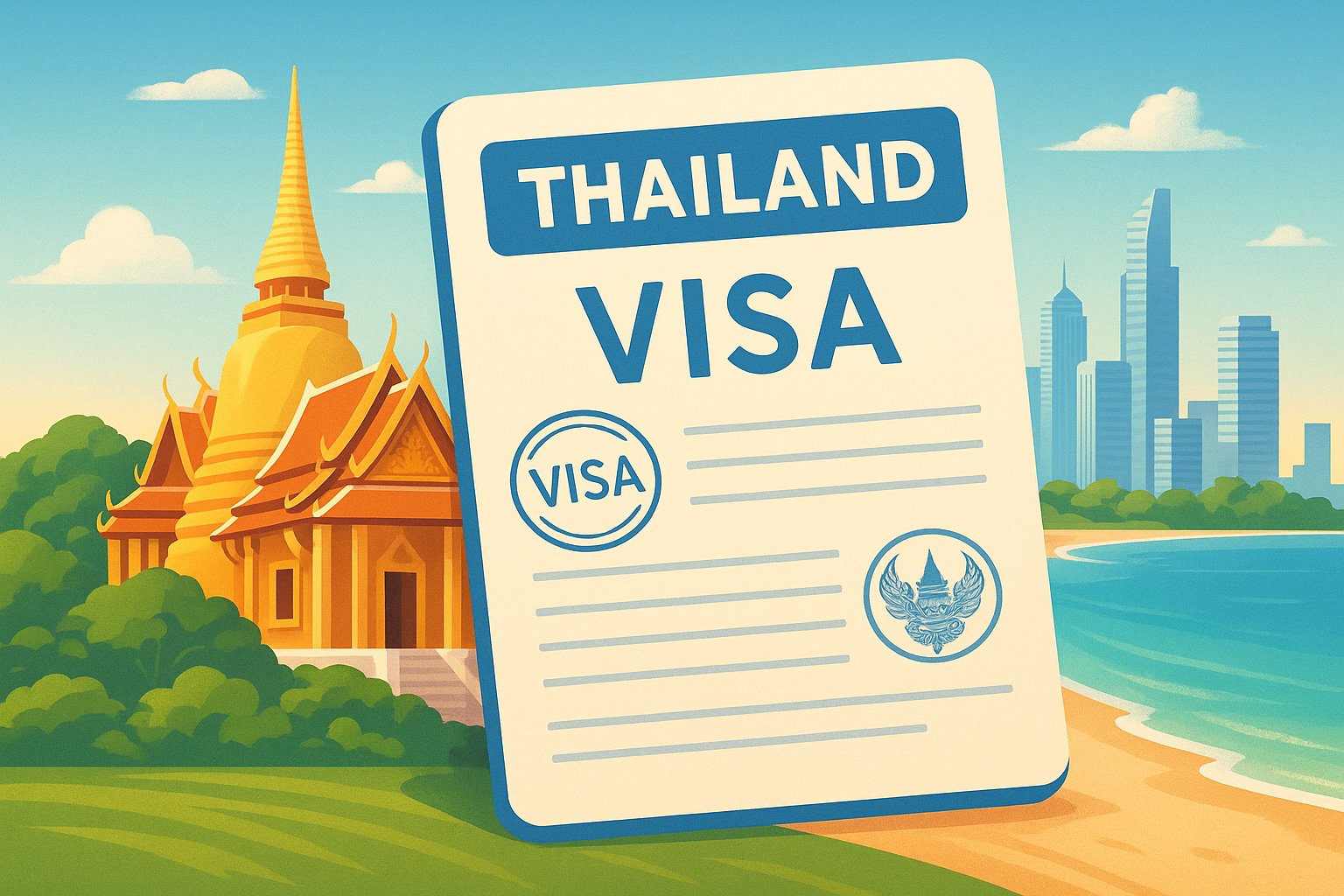Thailand Visa Guide (2025) : Everything You Need to Know
Navigating Thailand’s visa regulations can be challenging. Here's your simplified guide to Thailand’s visa types for expats, digital nomads, and retirees in 2025.
1. Visa-Free Entry (Tourist Visa Exemption)
Duration: 30 days (extendable once for 30 additional days)
Who it’s for: Tourists and short-term digital nomads
Requirements: Passport valid for at least 6 months, return ticket or onward journey proof
2. Tourist Visa (TR Visa)
Duration: 60 days (extendable for 30 additional days)
Who it’s for: Tourists and digital nomads exploring Thailand for a longer stay
Requirements: Passport, completed visa application, proof of funds, hotel reservations, return or onward ticket
3. Education (ED) Visa
Duration: 90 days, renewable for 1 year total
Who it’s for: Students, language learners, or training participants
Requirements: Enrollment documents from an accredited school, passport, proof of funds
4. Business (Non-Immigrant B) Visa
Duration: 90 days, extendable to 1 year with work permit
Who it’s for: Entrepreneurs, business owners, and workers employed by Thai companies
Requirements: Passport, employment letter, business documents, evidence of financial stability
5. Retirement (Non-Immigrant O-A & O-X) Visa
Duration: 1 year (O-A), up to 10 years (O-X)
Who it’s for: Retirees aged 50 or above
Requirements: Proof of retirement funds (THB 800,000 in Thai bank or monthly income of THB 65,000), health insurance, medical certificate
6. Digital Nomad / Long-Term Residency (LTR) Visa
Duration: Up to 10 years (renewable every 5 years)
Who it’s for: Remote workers, digital nomads, professionals, and wealthy individuals
Requirements: Proof of remote work or employment overseas, minimum income requirement (around USD 40,000/year), health insurance coverage
Key Tips:
Extensions: Many visas can be extended at local immigration offices.
90-day Reporting: All long-term visa holders must report their residence every 90 days.
Visa Runs: Short-term visitors must leave Thailand briefly to reset their stay unless switching to another visa type.
Overstay Penalties: Severe fines and possible bans apply for overstays; always maintain visa validity.
Thailand’s visa policies can change, so always check the latest information from your local Thai embassy or consulate.
Stay informed, stay legal, and enjoy your life in the Land of Smiles!

